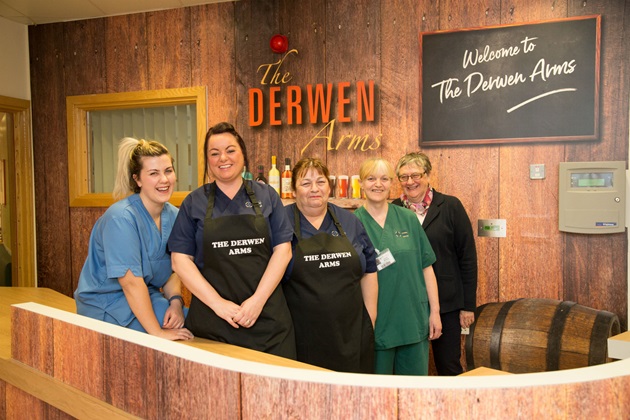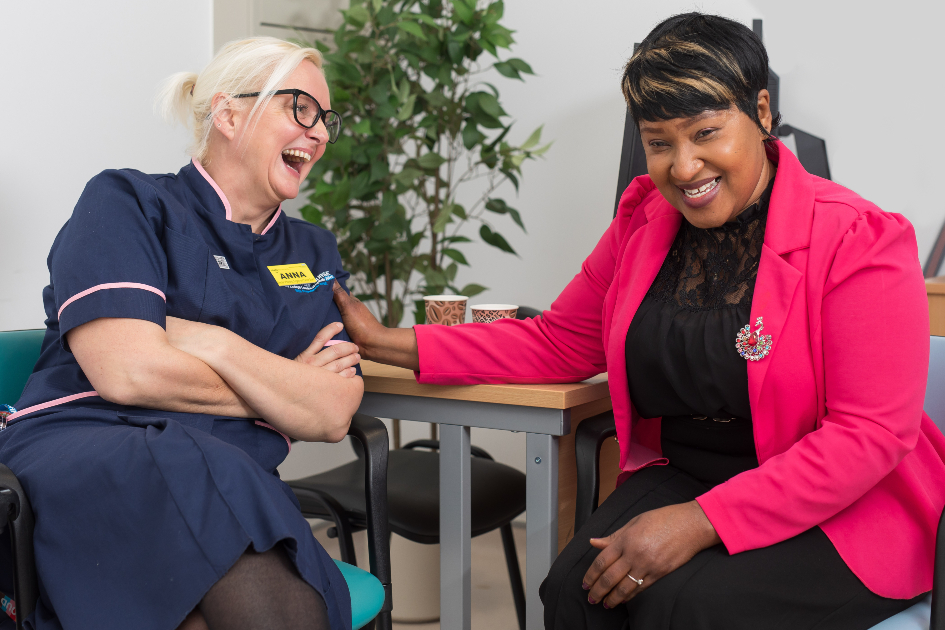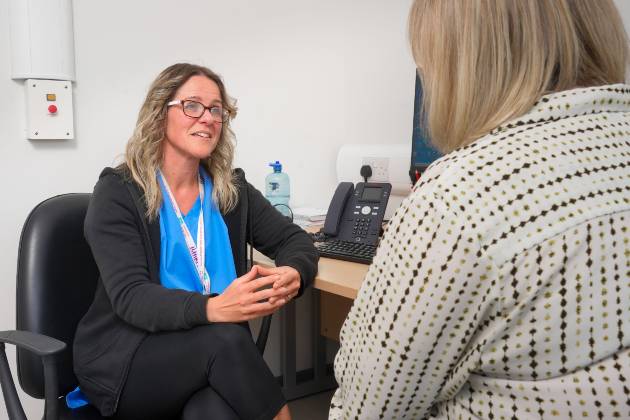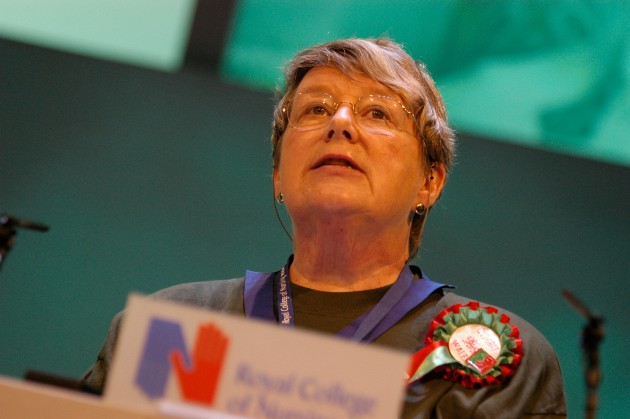Nursing staff have reduced falls, medication use and aggressive behaviour by converting an unused clinical area into a social hub for patients and their families
You wouldn’t usually expect to find a pub in a typical NHS hospital ward. But for people with dementia who don’t always realise they’re in hospital, that sense of familiarity can be the difference between a good and bad day.
Recreating common surroundings and everyday life for people with dementia isn’t new of course. The Scandinavian model of dementia care has been well documented.
There, mini villages with an emphasis on replicating life as it used to be provide safe surroundings for patients with dementia. Cultural and socialising preferences can be taken into account but in a resource-stretched NHS, ideas like these often remain just that.
Unless, that is, you have nursing staff who are absolutely determined to make a difference. Staff who are willing to use what resources they have to go the extra mile and use their imaginations to best effect.
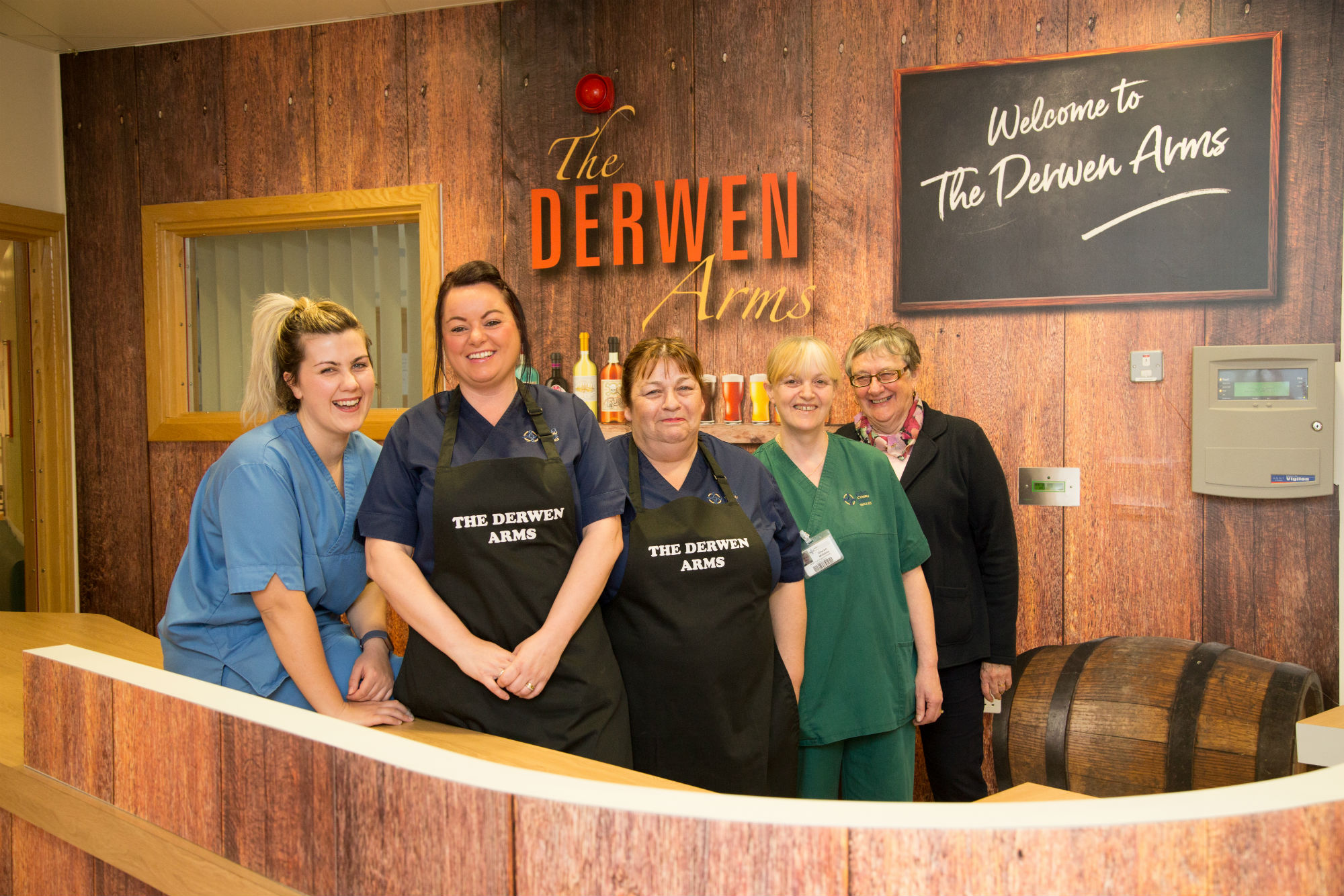
Creating something special
Many of the patients on the Derwen Ward in Ysbryd y Coed Hospital are older men living with dementia. With their hospital stays often lasting months, rather than weeks, staff get to know them well.
They noticed that many of the men believe they’re still working and come five o’clock they want to know why they’re still there, when, as far as they’re concerned, they should be clocking off and heading to the pub.
So staff got planning. But how do you make part of an NHS hospital ward look like a pub?
Ward manager Katharine Protheroe had always thought the curved design of the unused night station lent itself to being used as a bar, so she and her nursing team got creative.
Being resourceful
“One of the support workers contacted a local commercial printing company. They designed a vinyl wall piece to look just like a bar. Leading off that area we’ve used a spare double bedroom as the bar’s lounge. In there we have a fridge, a dart board, a pool table and some sports memorabilia,” she says.
Having a ready-made activity which provokes happy memories of familiar surroundings has proved really helpful. Patients can pop into “The Derwen Arms” for a non-alcoholic pint before lunch or later on in the afternoon.
Staff have got on board right from the beginning
“It really helps settle the patients, but staff have got on board right from the beginning. We’ve taken on the project as our own, sourcing the essentials like sturdy plastic pint glasses. And relatives really enjoy being able to help too – they’ve gone to local pubs to ask for beer mats and bar towels,” Katharine adds.
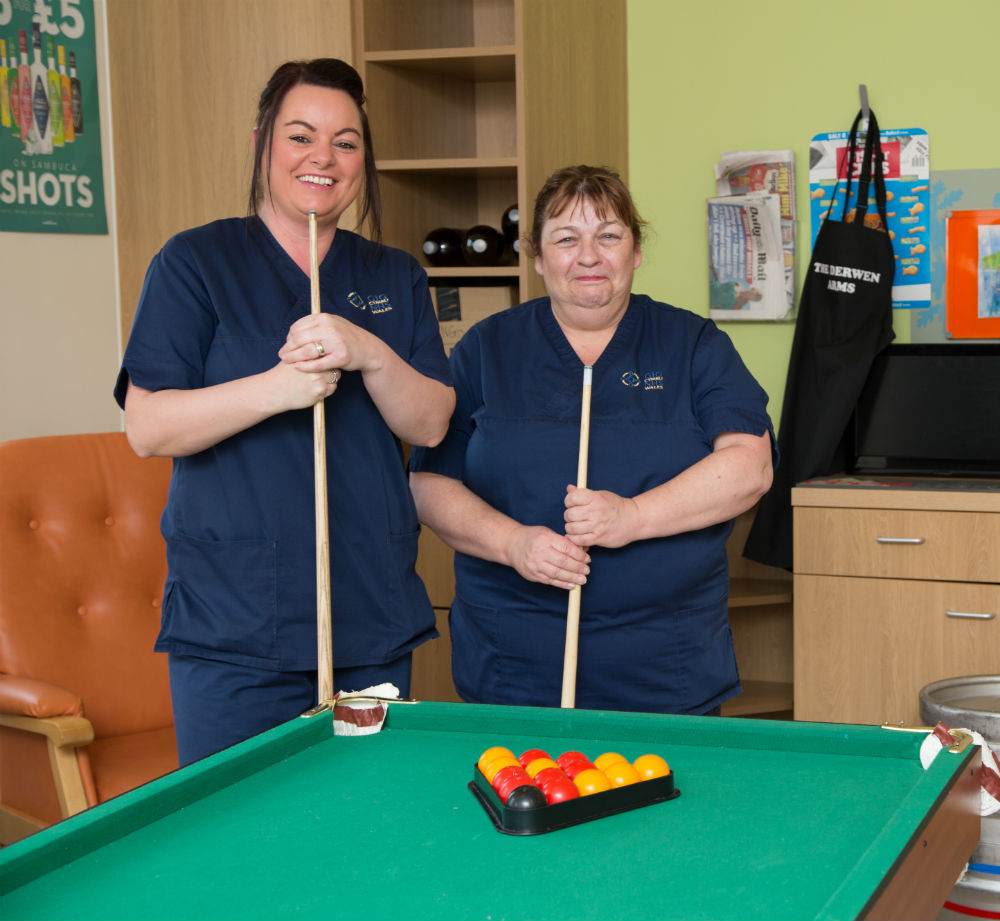
Using the space to replicate a former life isn’t the end of the story in the Derwen Arms. Its new role as a social area has brought benefits the staff hadn’t dreamt of. Dawn Griffin, clinical lead on the ward, decided to organise a romantic supper on Valentine’s Day hosted in the pub.
“It was a chance to invite wives of our patients to spend time with their loved ones in a way they might have done before,” she explains. “We spread rose petals around the whole ward and all the wives were blown away.”
But staff hadn’t predicted what happened next. Far from this being a one-off social event, the wives got talking to each other – they realised they weren’t alone and swapped numbers.
They now support each other through many of the challenges that come with having a loved one who is living with dementia. Dawn is setting up an afternoon tea for the female relatives as the huge benefits of supporting them as well as the men in their direct care have become clear.
Health benefits
Since the Derwen Arms opened its doors, there’s been a huge change on the ward. A reduction in the number of falls, fewer medications being used and less aggressive behaviour have all been reported. The men are socialising like never before – initiating conversations, keen to know when the pub will open. Even staff satisfaction has improved.
More evidence is now being gathered but what’s clear is that this is just the beginning. More events are being planned, including race days and bingo nights. Managers have embraced and supported the work so now if you visit the ladies ward you’ll notice a tea room and a hair salon as other wards get in on the act.
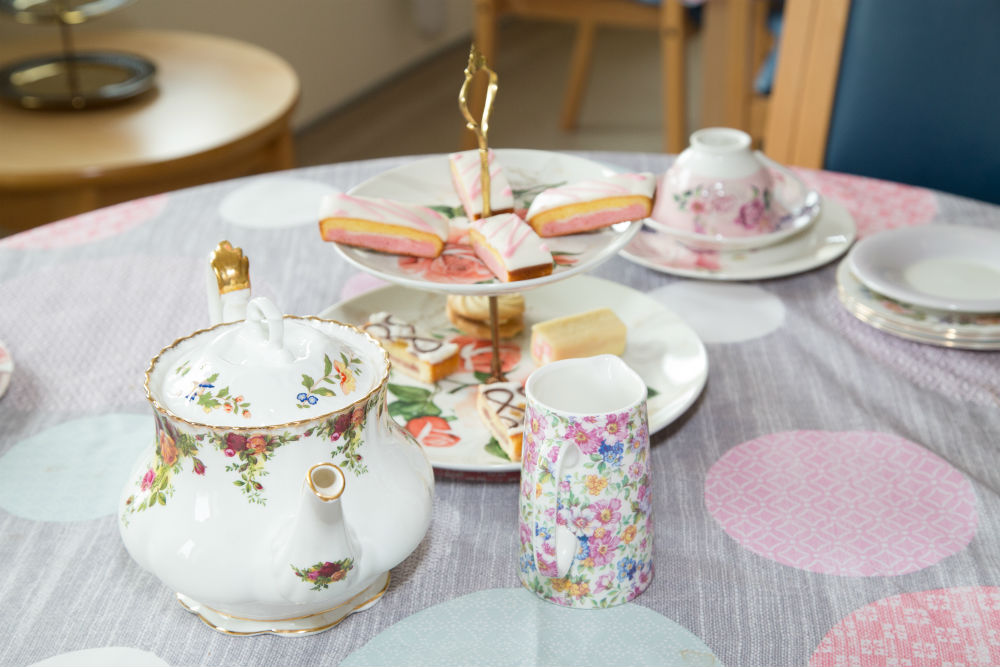
“Now ladies have their hair done and then come to our pub to socialise,” says Dawn. “Another ward is looking at setting up a flat and we’ve got plans for an outdoor garden with potting sheds.”
A quiet revolution in NHS dementia care in this hospital is spreading. Resources might be thin on the ground but enthusiasm, compassion and care are abundant, thanks to nursing staff.
'The nursing staff are there for us all'
Denise Whitelock, daughter of a patient on Derwen Ward, pays tribute to staff going above and beyond
Seeing Mum and Dad have their first meal together in a year on Valentine’s night was wonderful. They sat together in the decorated Derwen Arms to exchange cards and gifts. It meant the world to Mum that Dad gave her a chocolate flower.
He’s living with Lewy body dementia and has been on the ward for 17 months. The nursing staff there go way beyond their hospital duties to help us all live life as normally as we can. The happy atmosphere they’ve created is so different to a traditional clinical environment.
Going for a game of pool in the pub with a non-alcoholic beer is a great way for us all to forget where he is just for a little while.
The happy atmosphere they’ve created is so different to a traditional clinical environment
The individual care staff provide means I can go to them if I have a question or concern and I’m confident that they will come to us first if Dad becomes distressed.
If we have a difficult visit, they phone me later to tell me if he’s calmed down and they always let me speak to him on the phone. He’s happy to ask them to phone me too, so he can speak to me anytime.
We’re a close family so this is a very difficult time. Dad’s had a visitor every single day since he’s been on the ward. And on every day of these 17 months, the nursing staff have been there for us all.
Further information
By 2025 it’s expected that more than one million people will be living with dementia in the UK.
Find out more about guidance and resources that support the RCN’s commitment to improving care for patients with dementia and their families.
Words by Sharon Palfrey. Pictures by Stuart Fisher.


